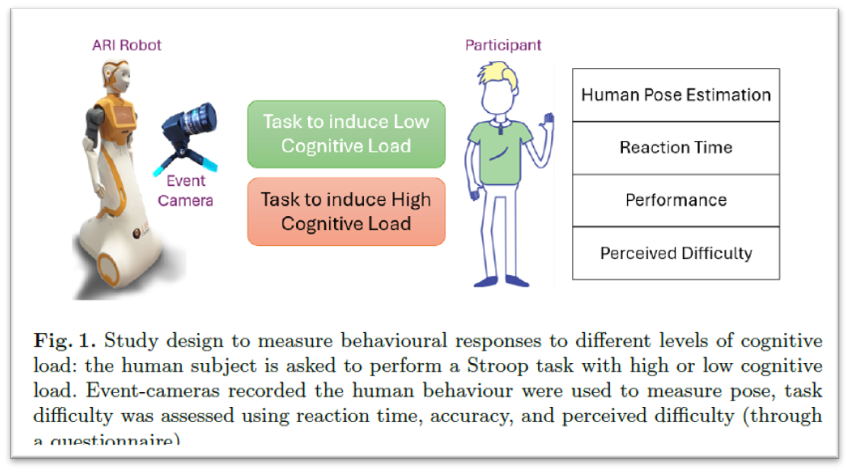Measuring Cognitive Load Through Event Camera Based Human-Pose EstimationMuhammad Aitsam, Dimitri Lacroix, Gaurvi Goyal, Chiara Bartolozzi, and Alessandro Di Nuovo
The full paper can be found here (https://link.springer.com/chapter/10.1007/978-3-031-81688-8_17)
Some of the papers introduced here are available as open access, while others may require a subscription or membership to view the full text. Access may depend on your institution's or organization's subscription status, so please refer to each link for details.
Abstract
The cognitive load is related to the effort associated with performing a specific task. It can affect learning efficiency, problem-solving abilities, and overall performance. In human-robot collaboration, the capability of a robot to assess cognitive load of humans during a joint task execution can positively affect performance, as robots can adapt its behaviour and mitigate cognitive demands. In this study, we measured behavioural responses to cognitive load, to assess how varying levels of cognitive load affects human body pose and movement. To this aim, we used low-latency, high temporal resolution, compressive event cameras and a lightweight human pose estimation network that can work in real-time at high frequency. Our results demonstrate that participants exhibit stiffer body movements under high cognitive load and more relaxed movements when cognitive load is low. Also, the reaction time is affected by the level of cognitive load. These findings suggest that cognitive load can be effectively inferred from event-driven pose estimation data, offering a non-invasive real-time method to monitor cognitive states and implement online adaptive responses in collaborative tasks.
Ph.D. Muhammad Aitsam, Sheffield Hallam University and Smart Interactive Technologies Research Lab
LinkedIn (https://www.linkedin.com/in/muhammad-aitsam-653894105/)
Google Scholar (https://scholar.google.co.uk/citations?user=8zEI5F8AAAAJ&hl )


